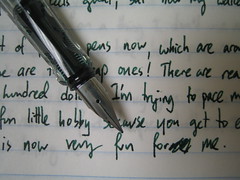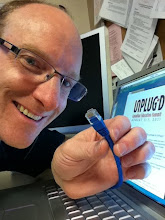 Today at a meeting of department heads, we were asked to consider spending a few thousand dollars to gain access to the most popular plagiarism detection database: Turnitin.
Today at a meeting of department heads, we were asked to consider spending a few thousand dollars to gain access to the most popular plagiarism detection database: Turnitin. In leveraging tools to teach learners about academic integrity, here are my recommended Terms of Use for Plagiarism Detection:
1] Staff members will commit to teaching lessons on academic integrity. (via @ransomtech)
2] Teachers will overtly model academic integrity by attributing their sources for lessons, assignments, and coursework. (Where do your ideas, text, graphics come from?)
3] Conscientious attempts will be made by teachers to design authentic writing tasks that are resistant to copying. (via @sadone)
4] Students will be provided with opportunities to present their ideas in alternative ways including the use of emerging media tools.
5] It will be the norm for written assessments to be completed in the presence of the teacher.
6] Comprehensive training in the roll-out of digital detection software, will welcome the participation of interested students. (via @rivenhomewood)
7] Plagiarism detection will be used primarily by students as a way to gauge the integrity of their writing before submitting final drafts. (via @GDhuyvetter)
8] It will be the norm for students to use modern writing tools that track the 'history' of a document's development. (E.g., Google Documents)
9] Educators will learn (and teach students) how to use quoted text in a 'Google Search' as a way to validate suspicious strings of text.
10] Users will become familiar with the terms of the service agreement and will carefully consider the ethical consequences of submitting content to an online plagiarism service.
Photo Credit: churl



